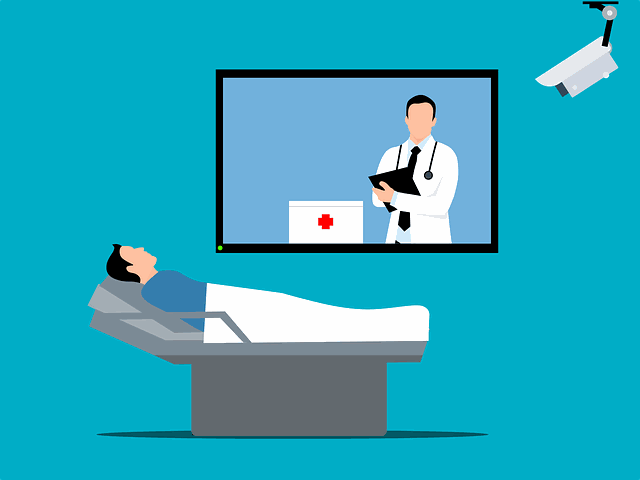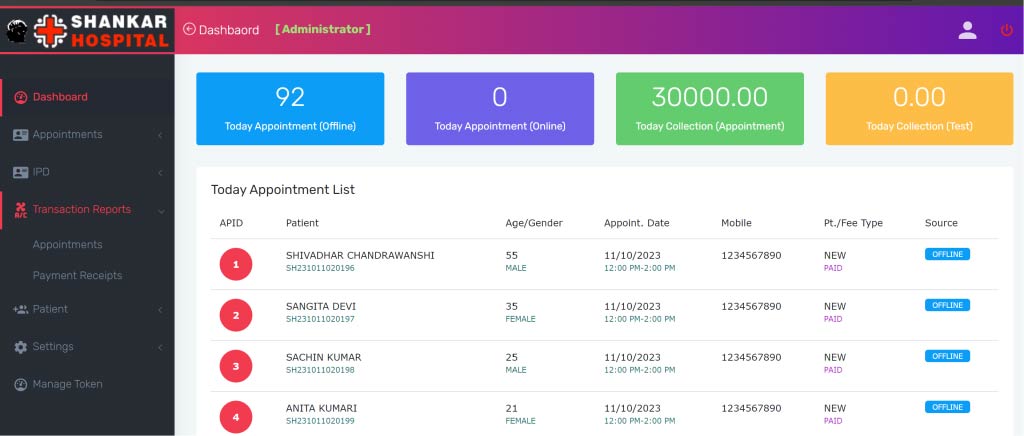e-Hospital
E-Hospital: A Digital Revolution in Healthcare
E-Hospital are transforming healthcare by utilizing digital technologies to enhance service delivery. One key innovation is the implementation of Electronic Health Records (EHR), which provides a centralized digital repository for patient histories, diagnoses, and treatment plans. By enabling seamless exchange of information among healthcare providers, EHR enhances collaboration and ensures better continuity of care. This leads to patients benefiting from more coordinated care and faster interventions.
Telemedicine: Expanding Access and Reducing Wait Times
Telemedicine is a standout feature of E-Hospital, enabling virtual consultations that allow patients to connect with healthcare professionals remotely. As a result, telemedicine reduces waiting times and improves accessibility, especially for individuals in remote or underserved areas. Patients also enjoy the flexibility to schedule appointments online, choosing times that suit their needs. Furthermore, the integration of automated billing systems enhances the financial process by generating accurate bills and simplifying insurance claims, reducing errors.
Streamlined Healthcare Services through Integrated Systems
E-Hospital incorporate pharmacy management systems to streamline medication dispensing and management. These systems help improve prescription processing and inventory control. Moreover, diagnostic service integration allows for easy ordering and processing of medical tests. Additionally, integrating health monitoring devices, such as wearables, enables real-time tracking of patient health metrics, which contributes to proactive health management. Consequently, early detection of health issues is made possible, leading to timely interventions.
Prioritizing Security and Data Privacy in E-Hospitals
Security plays a critical role in the success of E-Hospitals. To ensure patient data protection, robust security measures and compliance with data privacy regulations are essential. Advanced analytics tools provide valuable insights into patient demographics and treatment outcomes. Such insights help healthcare providers make data-driven decisions that improve overall patient care and operational efficiency.
Conclusion: E-Hospitals as a Holistic Healthcare Solution
E-Hospitals represent a holistic, patient-centered approach to healthcare in the digital age. By focusing on accessibility, efficiency, and data-driven decision-making, E-Hospitals are reshaping healthcare delivery for the better.


Get Free Demonstration
S. No. | User ID | Password | |
01 | admin | Abcde@4321 |  Administrator |
02 | DR0001 | Abcde@4321 |  Doctor1 |
03 | Lab1 | Abcde@4321 |  Lab1 |
04 | Manager1 | Abcde@4321 |  Manager1 |
05 | Reception1 | Abcde@4321 |  Reception1 |
Key Concepts
1. Electronic Health Records (EHR) in E-Hospitals
E-Hospitals prioritize the creation and maintenance of Electronic Health Records (EHR). In addition, this digital repository stores comprehensive patient information, including medical history, diagnoses, medications, and treatment plans. As a result, EHRs enhance information accessibility, allowing healthcare providers to make well-informed decisions more efficiently.
2. Telemedicine and Virtual Consultations in E-Hospitals
E-Hospitals integrate telemedicine solutions for virtual consultations. Thus, patients can connect with healthcare professionals remotely, facilitating timely and convenient access to medical advice and consultations. Consequently, patients are empowered to seek care without the need for in-person visits, reducing wait times and increasing convenience.
3. Appointment Management and Scheduling in E-Hospitals
Efficient appointment scheduling and management systems are integral. For instance, patients can book appointments online, reducing wait times, optimizing resource utilization, and enhancing overall patient experience. Moreover, these systems ensure that both healthcare providers and patients can coordinate schedules effectively, improving time management.
4. Health Information Exchange (HIE) in E-Hospitals
E-Hospitals often participate in Health Information Exchange networks, allowing seamless sharing of patient data between different healthcare providers. This, in turn, ensures continuity of care and comprehensive patient management, especially when patients are treated by multiple specialists. Therefore, HIE contributes to a more coordinated and effective healthcare system.
5. Medical Billing and Insurance Processing in E-Hospitals
Integrated billing modules automate the billing process, generating accurate bills for services rendered. Additionally, E-Hospitals facilitate the processing of insurance claims, reducing administrative complexities and enhancing financial workflows. As a result, both patients and healthcare providers benefit from smoother, more efficient financial interactions.
6. Pharmacy Management in E-Hospitals
E-Hospitals incorporate pharmacy management systems for efficient medication dispensing and management. This includes, among other features, prescription processing, inventory control, and patient education regarding medications. Moreover, it ensures that medication dispensing is accurate and timely, improving patient safety and satisfaction.
7. Diagnostic Services Integration in E-Hospitals
Integration with diagnostic services streamlines the ordering and processing of tests. Consequently, test results are digitally stored within the EHR, providing a centralized and comprehensive view of patient health. Therefore, healthcare providers can access these results quickly, making it easier to diagnose and treat patients.
8. Health Monitoring Devices Integration in E-Hospitals
Integration with health monitoring devices, such as wearables or home monitoring tools, allows for real-time tracking of patient health metrics. In this way, this data contributes to proactive healthcare management and early intervention, reducing the risk of complications and improving patient outcomes.
9. Security and Data Privacy in E-Hospitals
E-Hospitals prioritize robust security measures and compliance with data privacy regulations. As such, safeguarding patient information from unauthorized access is a critical consideration in the design and implementation of E-Hospital systems. Therefore, these systems ensure that patient data remains protected, fostering trust in digital healthcare services.